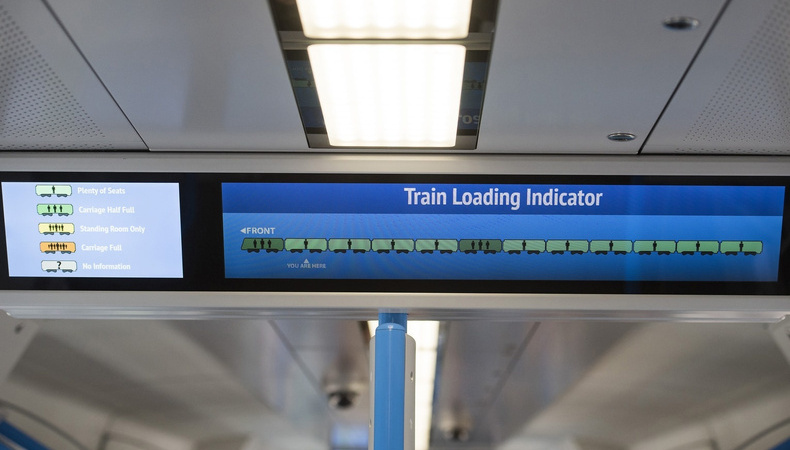How Thameslink can help you sharpen up your business writing
I’m on a Thameslink train into London, watching their little carriage info screen. It’s sharing some pretty useful information. But it’s not as impactful as it could be because their writing’s a little clunky.

There are four basic better writing principles that will make it much more effective. They’ll also help your own business writing work harder for you. I’m going to rewrite Thameslink’s on-screen messages to show you how they work.
1 - Keep it snappy
As a rule, the fewer words the better. For example, check out:
- We will shortly be arriving at Three Bridges
It’s a short sentence, but it still feels wordy. So let’s turn it into:
- We’re about to reach Three Bridges
That’s two words and eleven characters shorter. And it sounds much more natural.
After all, you’re much more likely to say:
- I’m about to serve supper
Than:
- I will shortly be serving supper
2 - Talk about ‘you’ and ‘us’
It’s a subtle but effective way of reaching your audience more directly. So, you could turn:
- This is coach 9 of 12
into:
- You’re in coach 9 of 12
The second version is much more direct and personal. It’s the difference between:
- This is supper
And:
- Here’s your supper
Which would you rather hear when you sit down for your sausages?
3 - Lose the pointless detail
Now here’s some very useful information. There’s a diagram of which train loos are open, a little ‘you are here’ dot and:
- Toilets on this train
- You are here
- Something so small I can’t actually read it
I’ve never noticed that tiny, unreadable bit of writing before. So let’s lose it. That gives us more space to make the important words bigger. And they can be snappier, too:
- This train’s toilets
- You’re here
Using our supper example, it means moving from:
- A supper of sausages, chips and peas mumble mumble mumble
To:
- Your supper’s sausages, chips and peas
4 - Avoid off-putting corporate language
Some words have a very cold, corporate feel to them. Here’s a great example:
- This train terminates at Bedford
Now I’m thinking about Arnold Schwarzenegger at his most robotic. So let’s get rid of ‘terminate’ and say:
- Our last stop is Bedford
That’s much less distant. And we can change its companion message, ‘The next station is / Balcombe’, to match it:
- Our next stop is Balcombe
Or, in food terms, instead of:
- We terminated supper
Which just sounds wrong, we’d say:
- We finished supper
Which doesn’t.
What’s all that actually achieved?
None of these are big changes. But they create a very practical pay-off – people are much more likely to read and act on shorter, sharper, friendlier writing.
So, if you’ve got a second, why not take our four principles:
- Keep it snappy
- Talk about ‘you’ and ‘us’
- Lose the pointless detail
- Avoid off-putting corporate language
And try them out on your own business writing? They’re sure to change it for the better.
